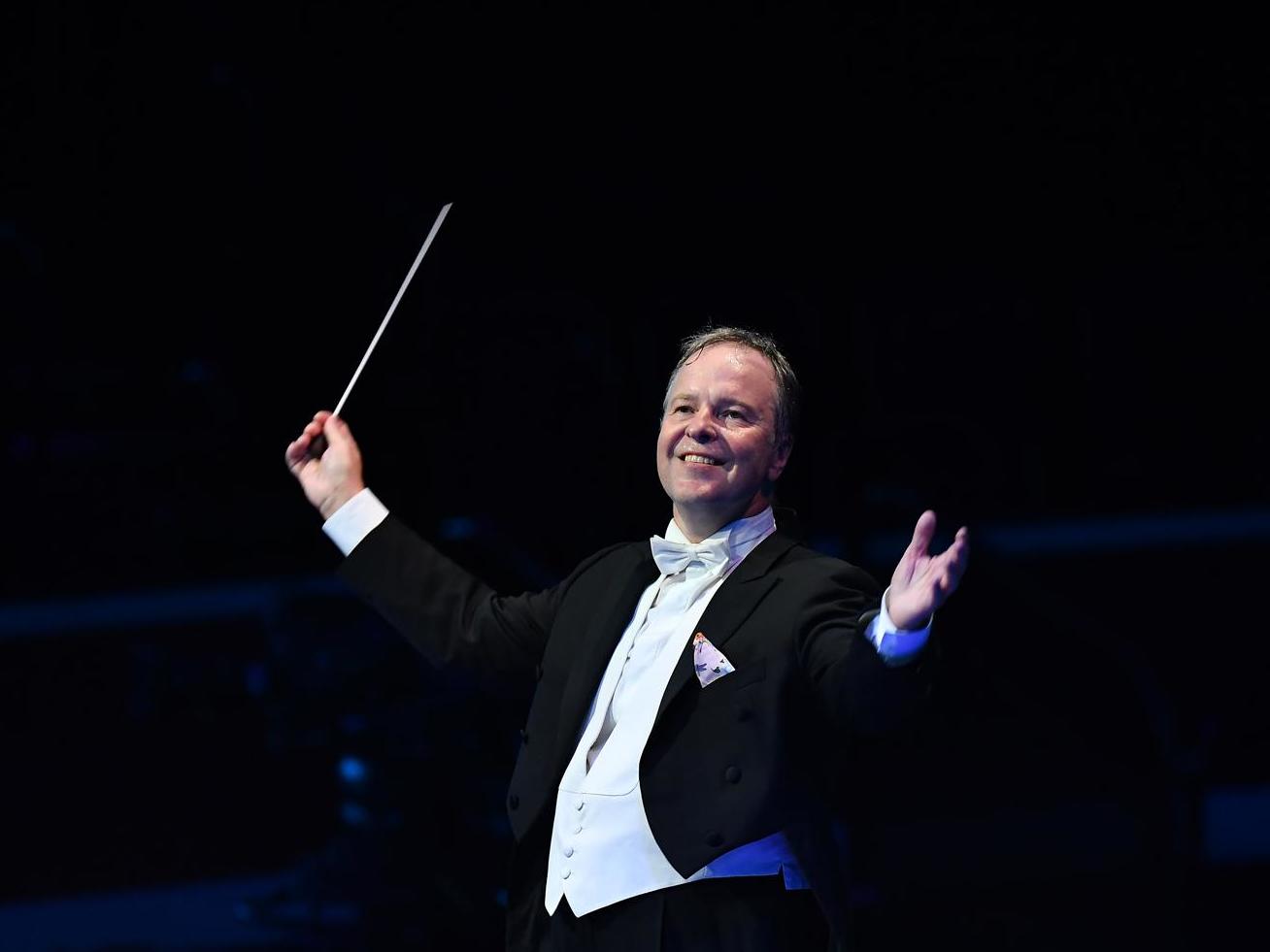BBC Proms, review: First night of Live Proms was limp and listless
Event was a sad exemplification of how Covid has cowed the world of live music

Your support helps us to tell the story
From reproductive rights to climate change to Big Tech, The Independent is on the ground when the story is developing. Whether it's investigating the financials of Elon Musk's pro-Trump PAC or producing our latest documentary, 'The A Word', which shines a light on the American women fighting for reproductive rights, we know how important it is to parse out the facts from the messaging.
At such a critical moment in US history, we need reporters on the ground. Your donation allows us to keep sending journalists to speak to both sides of the story.
The Independent is trusted by Americans across the entire political spectrum. And unlike many other quality news outlets, we choose not to lock Americans out of our reporting and analysis with paywalls. We believe quality journalism should be available to everyone, paid for by those who can afford it.
Your support makes all the difference.“We’re in for 90 minutes of heaven, in this Mecca of live music!” This is the first night of the Live Proms, and Katie Derham is in Radio 3 overhype mode. A cavalcade of cultural grandees, some of whom have aged alarmingly, are brought on to endorse the message, then we join Derham in a box with two guests, Stephen Fry and the composer Ayanna Witter-Johnson, for more focused promotion. Fry takes to this like a duck to water, but Witter-Johnson seems less at ease. Then Hannah Kendall, the composer of the first piece to be played, “Tuxedo: Vasco de Gama”, is brought on to explain how she was inspired by the anarchic art of Jean-Michel Basquiat to create a five-minute hymn to multiculturalism.
It’s a gentle, allusive piece, creating an agreeable sound world with unexpected instrumental juxtapositions, and including a harmonica and a tiny cardboard musical box. But hyperactive camera work means that our aural concentration is systematically disrupted, making it impossible to grasp the structure of the work. Derham’s guests are invited to extol it.
Next up is “Sleep”, Eric Whitacre’s a cappella setting of a Charles Anthony Silvestri poem which Fry tells us he loves listening to while lying on a bed of grass. As sung by the BBC Singers dispersed round the auditorium of the Royal Albert Hall, this six-minute sub-Tavener effort is indeed soporific. However, flitting from face to face, and from long shot to close-up, the BBC cameras never sleep.
Continuing the theme after more strenuous puffery from Derham and co comes Aaron Copland’s “Quiet City”, an understated, meditative 10-minute piece designed to evoke New York by night. Led by soloists on trumpet and cor anglais, it has fey charm; this time the cameras range all over the world to bring us images of other great cities deserted and asleep. “That was extremely moving,” Derham informs us with schoolmistressy emphasis when it is over, adding approvingly that the orchestra “played their socks off”. The programme is brought to a close with Sakari Oramo conducting the BBC Symphony Orchestra in Beethoven’s “Eroica” Symphony. As the cameras flit dutifully from player to player, and from the interior of the hall to the streets outside, this Herculean work becomes tamed and marginalised, its last movement seeming, thanks to a very slow tempo, to be interminable. Each of these pieces has been diminished, rather than augmented, by the camera work imposed on it, and by the super-added chatter in the gilded box.
Who chose Beethoven’s symphonic warhorse – of which Radio 3 had broadcast a different version only two weeks previously – and the forgettable little pieces which preceded it? Only a committee with wokeness at the forefront of their minds. “This concert has been like water in the desert,” avers Fry loyally, while a scatter of applause – taped? – runs round the auditorium. It’s difficult to imagine a programme less likely to draw in the new, young, classical-music audience which the BBC so desperately craves.
This limp and listless event, with its hyperactive presentation, was a sad exemplification of how Covid has cowed the world of live music. And the Prom recorded in 2016 that was broadcast the night before rammed that fact painfully home. The programme was a vivid one, and it had its own inbuilt drama with the substitute cello soloist Alexey Stadler – flown in at a few hours’ notice – performing heroically, and with an atmosphere crackling with excitement. You could sense the mood of the audience throughout, and the way it interacted with the performers. And when it came to the joke encore – Shostakovich’s take on “Tea for Two” – the laughter which accompanied the music became an integral part of it. This may have been a mere recording, but it was still a truly shared experience.
The contrast with the sterility of the first Live Prom could not have been greater. Never mind, tomorrow’s – in which Mitsuko Uchida, Simon Rattle and the LSO will officiate – promises better, provided the presentation can be reined in, and the camera operators instructed to cool it. But those elements, alas, may already have been set in stone.
Join our commenting forum
Join thought-provoking conversations, follow other Independent readers and see their replies
Comments